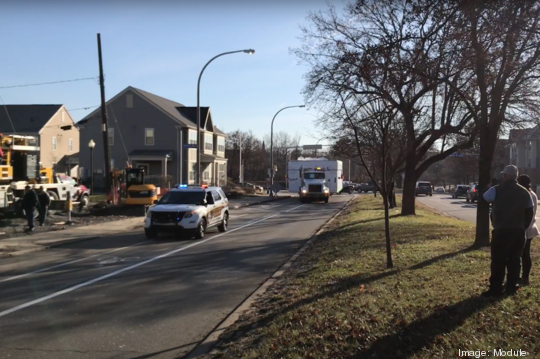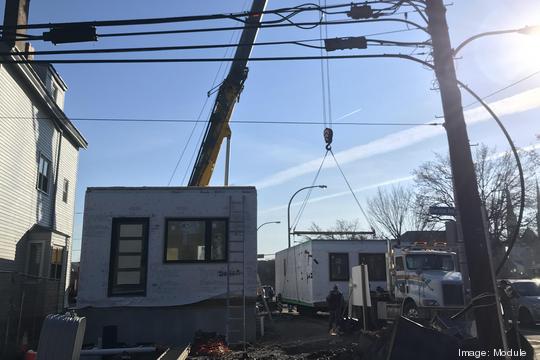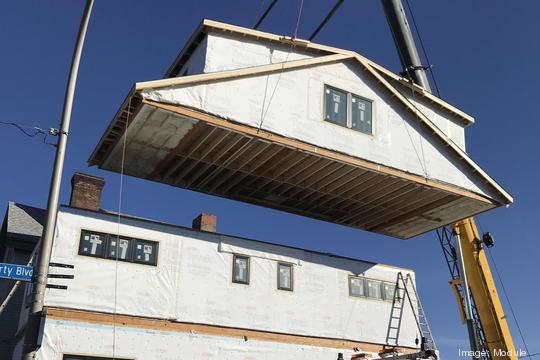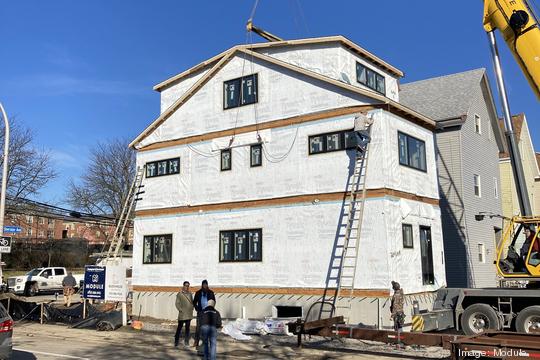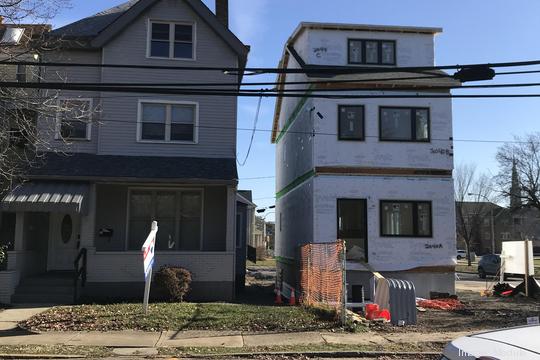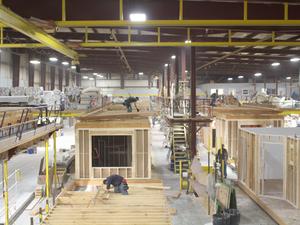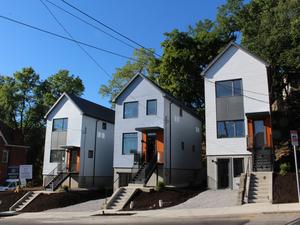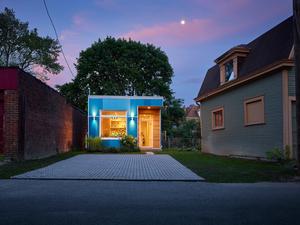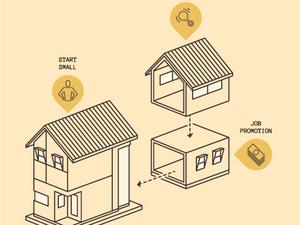Before Dec. 14 at 9:41 a.m., 500 N. Sheridan Ave. was just an empty lot of zoned residential land that bordered East Liberty Boulevard in Pittsburgh's East End.
But over the span of a little more than an hour, flatbed trucks under police escort transported three modular housing blocks to the site for installation via crane as part of what became a 2,400-square-foot multi-story residence with three bedrooms as well as two full- and two half-bathrooms made by Pittsburgh housing startup Module, which marked the end of the home's formal installation at 10:53 a.m. that same day.
The timing of the operation broke a record in installation speed for the company, which so far has completed five modular homes in the Pittsburgh metro since its founding in 2016. It also counts eight other modular homes, including this one, as still being under construction, all but one of which are in Pittsburgh; the company is also now building a home in Seattle, its first project outside of Pittsburgh.
"I think that was really exciting for us, and every minute, so to speak, counts in the fact that we were able to get that house delivered on a busy street — East Liberty Boulevard is a busy thoroughfare — to do it so quickly where we could limit the disruption to the neighborhood, limit our disruption to the traffic that's going by and provide some entertainment," Module CEO and Co-Founder Brian Gaudio said in reference to people in the area that day who stopped to watch the installation take place. "I think the significance is that this helps us deliver our product more quickly than ever before."
For this particular home, Module constructed the modules for it at a climate-controlled factory in Clarion over a period of a few weeks. It was at that factory that the home's multiple units received state-level inspections and certifications, a process Gaudio said can drastically reduce the amount of time needed to build a home compared to more traditional on-site builds. The company, which has five employees, also partners with other factories in the region that are used by modular housing companies to build Module's modules, though Gaudio said he eventually plans for Module to have its own site for such work in the future.
The home isn't done quite yet, however. Items like countertops and appliances need to be installed and the basement needs to be finished. Utilities need to be connected and inspected. Siding also needs to be put on the exterior of the home, among other tasks.
And that's not counting the work that Module completed before the home's installation. The process to secure the zoning and permitting rights for the lot took months to achieve, for example.
Gaudio made it clear to note that projects like these aren't ones that can be completed in just a few weeks. But the overall time saved by using the company's modular building process compared to traditional homebuilding is certainly notable, Gaudio said while pointing out a case study Module conducted comparing one of its other project's start and completion dates to a similar singe family home that began the construction process at right around the same time.
"We looked at the date we had applied for a building permit versus the date that we applied for our occupancy permit and we looked at our project, which was built modularly, and then another single-family housing project that was built in the neighborhood and looked at the time difference between date of building permit, date of occupancy applied for, and we did that 172 days faster than traditional construction," Gaudio said. "We're going to continue to collect data and to show the timeframes that we can deliver projects without sacrificing on quality."
Module is based in the Garfield neighborhood of Pittsburgh and has received funding from local seed investor Innovation Works, the Idea Foundry and others. Gaudio declined to disclose the company’s revenue.
